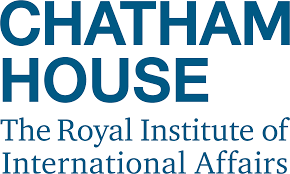You are here

The Royal Institute of International Affairs (Chatham House) and International Telecommunications Unit Arab Regional Cybersecurity Center (ITU ARCC) organized a one-day workshop on the thematic topic of “Cybersecurity of the Sustainable Energy Sector in the Gulf Cooperation Council Countries”, on 11 December 2017 at Muscat, Oman. Prof. Muhammad Khurram Khan was invited as a Cybersecurity expert from the Kingdom of Saudi Arabia and represented Center of Excellence in Information Assurance, King Saud University at this overwhelming event, which was aimed to  explore the cybersecurity threats landscape against the sustainable energy sector in the GCC. This workshop presented the current and future challenges of cyberspace, which keep emerging with the continuous transformation of the energy sector. It also illustrated these challenges through presenting regional as well as international experiences of cyber-attacks, vulnerabilities, incidents, and threats against the energy sector. Furthermore, it discussed some of the cybersecurity frameworks in the GCC as well as best practices in different jurisdictions to gauge their effectiveness in building the resilience of the energy sector against cyber attacks. Moreover, the workshop covered several case studies by renowned regional and international experts from government institutions, research centers, industry and technology companies, as well as cyber insurance companies etc. The participating experts underscored the value of developing an effective cybersecurity strategy for critical national infrastructure systems, including the energy sector, for decreasing vulnerabilities and increasing cyber resilience. There are a number of measures that need to be applied at the national level and across the GCC countries addressing people, process and technology in order to achieve this objective. Some of the recommendations of this workshop include, Establishing a central authority mandated with overseeing the cybersecurity of the energy sector; Encouraging incident reporting and information sharing to identify threats and share the best practices and lessons learned; Aligning and integrating the cybersecurity of the energy sector with the other cybersecurity strategies of the remaining critical national infrastructure sectors as well as with the national cybersecurity plan; and Developing clear and firm security requirements that contractors, suppliers, operators and stakeholders operating within the energy sector should be subject to and to which compliance would be mandatory. The organizer of this event, the Royal Institute of International Affairs (UK),
explore the cybersecurity threats landscape against the sustainable energy sector in the GCC. This workshop presented the current and future challenges of cyberspace, which keep emerging with the continuous transformation of the energy sector. It also illustrated these challenges through presenting regional as well as international experiences of cyber-attacks, vulnerabilities, incidents, and threats against the energy sector. Furthermore, it discussed some of the cybersecurity frameworks in the GCC as well as best practices in different jurisdictions to gauge their effectiveness in building the resilience of the energy sector against cyber attacks. Moreover, the workshop covered several case studies by renowned regional and international experts from government institutions, research centers, industry and technology companies, as well as cyber insurance companies etc. The participating experts underscored the value of developing an effective cybersecurity strategy for critical national infrastructure systems, including the energy sector, for decreasing vulnerabilities and increasing cyber resilience. There are a number of measures that need to be applied at the national level and across the GCC countries addressing people, process and technology in order to achieve this objective. Some of the recommendations of this workshop include, Establishing a central authority mandated with overseeing the cybersecurity of the energy sector; Encouraging incident reporting and information sharing to identify threats and share the best practices and lessons learned; Aligning and integrating the cybersecurity of the energy sector with the other cybersecurity strategies of the remaining critical national infrastructure sectors as well as with the national cybersecurity plan; and Developing clear and firm security requirements that contractors, suppliers, operators and stakeholders operating within the energy sector should be subject to and to which compliance would be mandatory. The organizer of this event, the Royal Institute of International Affairs (UK),  commonly known as Chatham House, established in 1920, is a non-profit, non-governmental organization based in London whose mission is to analyze and promote the understanding of major international issues and current affairs. Chatham House consistently ranks highly in the annual ‘Global Go To Think Tank Index’, where it has been the No. 1 think-tank outside the US for nine consecutive years, No. 2 worldwide for the past six years and was ranked Think Tank of the Year in the survey published in January 2017. The co-host, ITU Arab Regional Cyber Security Center (ITU-ARCC) is a division of the International Telecommunication Union (ITU) and the Sultanate of Oman, represented by the Information Technology Authority with a vision of creating a safer and cooperative cybersecurity environment in the Arab Region and strengthening the role of ITU in building confidence and security in the use of information and communication technologies in the region. ITU is a specialized agency of the United Nations (UN) that is responsible for issues concerning with information and communication technologies.
commonly known as Chatham House, established in 1920, is a non-profit, non-governmental organization based in London whose mission is to analyze and promote the understanding of major international issues and current affairs. Chatham House consistently ranks highly in the annual ‘Global Go To Think Tank Index’, where it has been the No. 1 think-tank outside the US for nine consecutive years, No. 2 worldwide for the past six years and was ranked Think Tank of the Year in the survey published in January 2017. The co-host, ITU Arab Regional Cyber Security Center (ITU-ARCC) is a division of the International Telecommunication Union (ITU) and the Sultanate of Oman, represented by the Information Technology Authority with a vision of creating a safer and cooperative cybersecurity environment in the Arab Region and strengthening the role of ITU in building confidence and security in the use of information and communication technologies in the region. ITU is a specialized agency of the United Nations (UN) that is responsible for issues concerning with information and communication technologies.